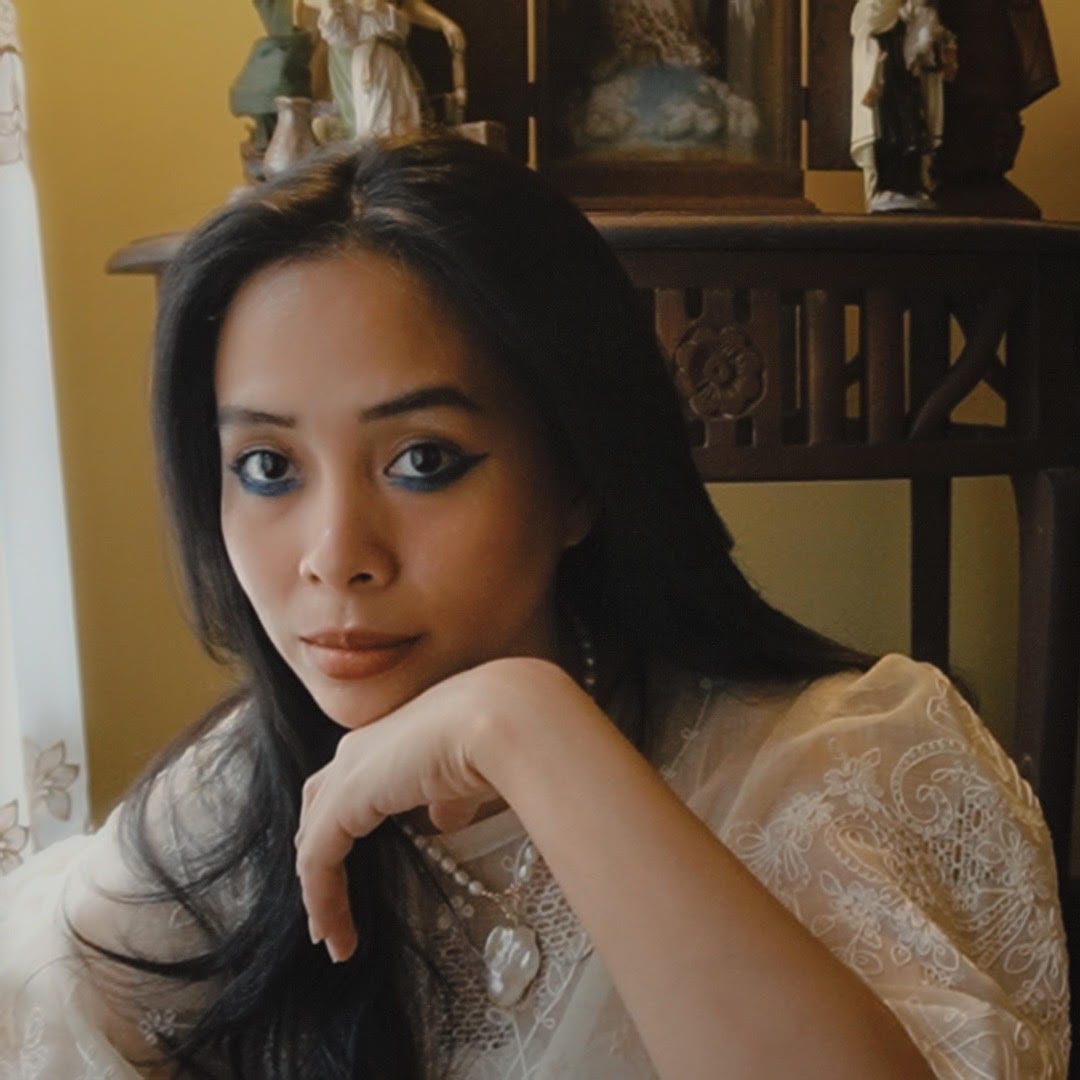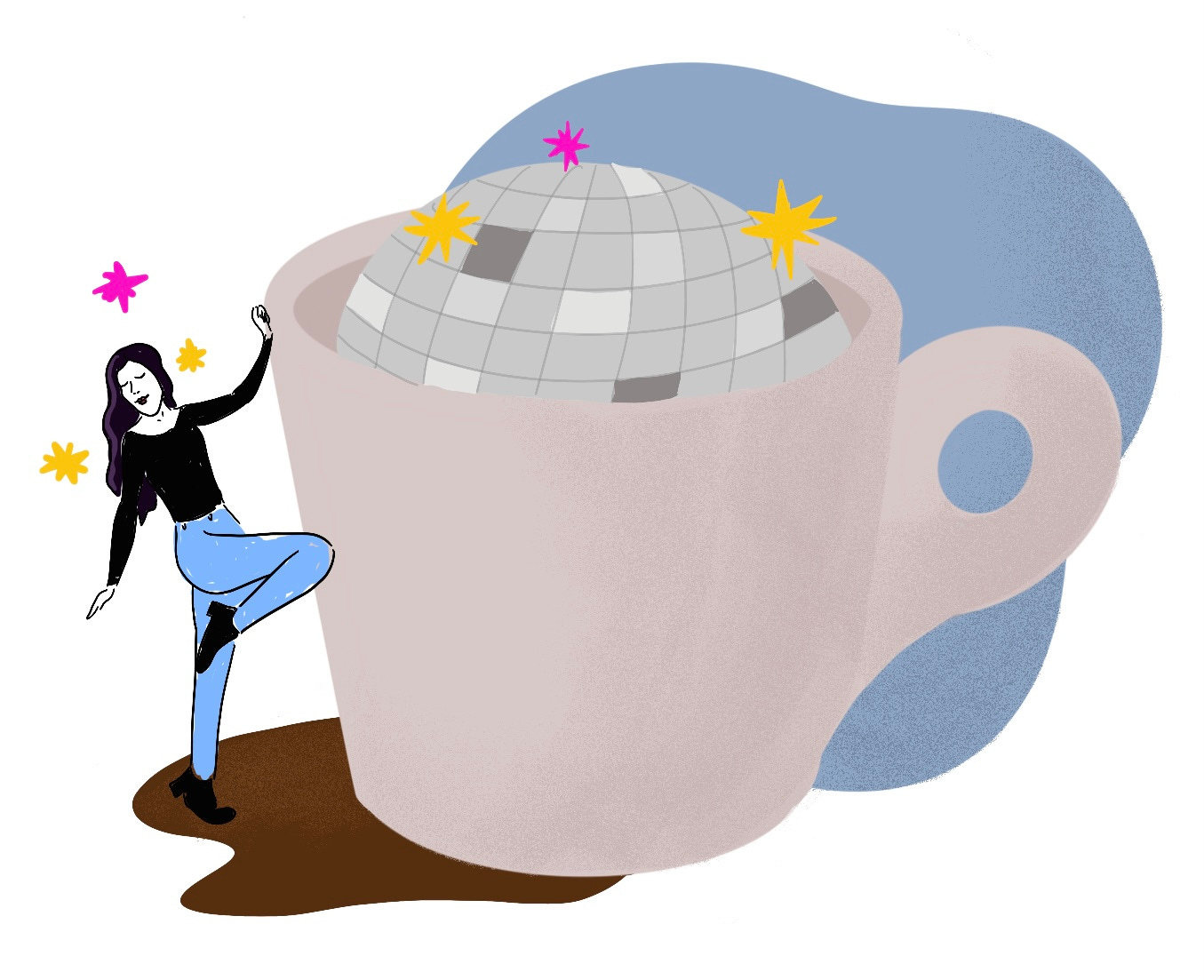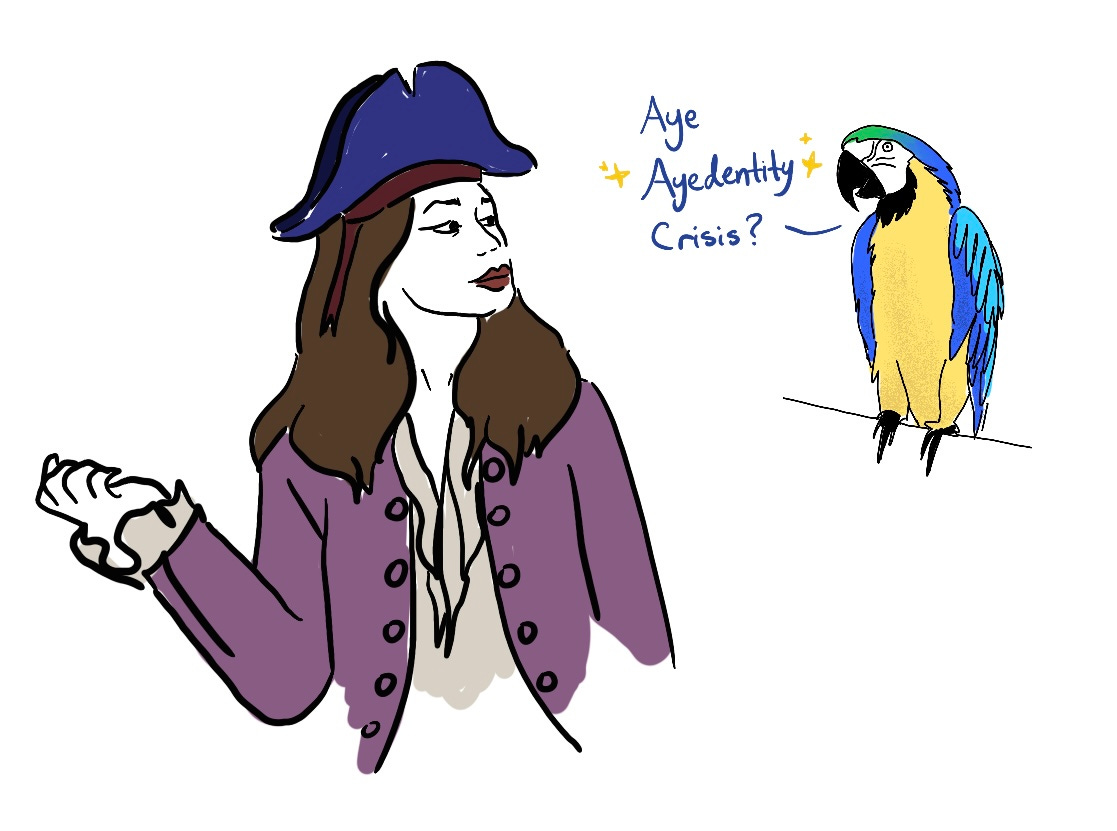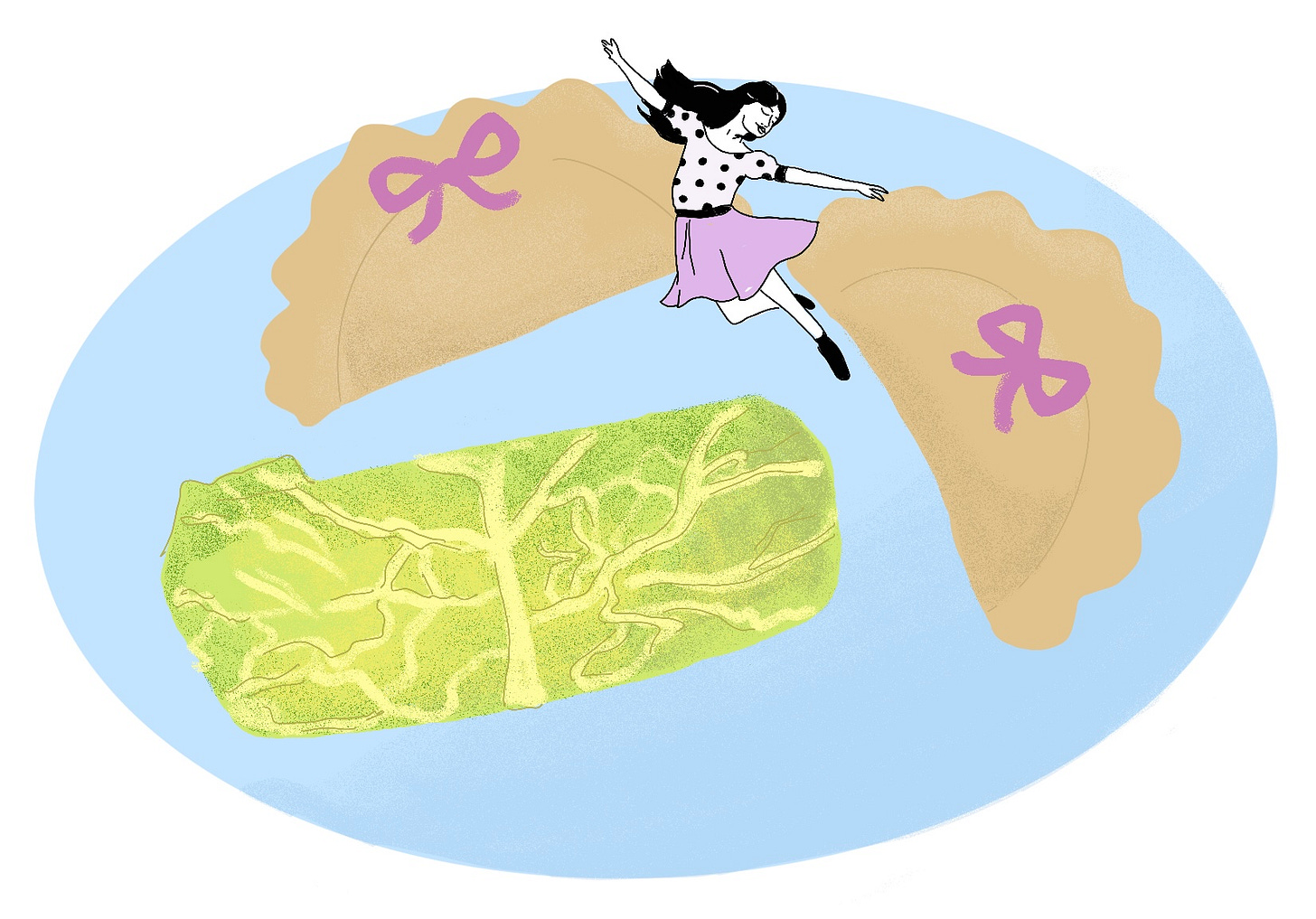Ramblings of an Expat: Leaving Myself
Contributor Krisha Mae Cabrera is back, writing from Poland this time. Through her words and illustrations, she recounts her pirate dreams and reflects on the meaning of it all.
Gdańsk, Poland
I ordered the “Coffee for a Person Crushed By Life”.
At Józef K, eerie little paintings hung crookedly along the walls. Antique electronics, knick-knacks, a model plane. Stuffed birds. Shelves of old books suspended from the ceiling. Almost hidden among them, a stagnant disco ball that would resurrect when the cafe turned into a bar for the evening. At a table nearby, a group of PhD students were laughing over the week’s events. There was one slice of sernik (Polish cheesecake) left in the cafe fridge.
Have you ever been to Cafe Gratitude in SoCal? I had visited several years ago and they forced me to affirm myself over a thirteen-buck juice that was somehow supposed to uplift my soul until I ascended into… the vibes I guess? Everyone has a rock bottom. At a time of deep law-school-induced abjection, my rock bottom was the moment I spewed, “I am succulent”.
I thought about that moment, as I drank my “Coffee for a Person Crushed By Life” at Cafe Józef K. After a while, a bartender replaced the barista. I traded the cafe menu for a cocktail list and my partner joined me after his day at the archives. A looming alchemy-like stack of liquor bottles glowed as the bar lights flashed on. The PhDs assigned representatives to queue for their drink orders while a steady stream of revelers materialized at the door. A playlist of early 2000s pop beckoned a few pioneers to make their way to the dance floor.
That day for me was indelibly, purely happy.
∗ ∗ ∗
Over the weekend, we took the train from Gdańsk to Sopot.
Even in cloudless midday sun, the Baltic was a frigid slate grey. The Sopot Pier loomed over it, a long stretch of flags and gleaming white wood. And then I couldn’t believe my eyes.
A pirate ship.
Masts, gaudy figurehead, gold detailing and all. The ship crawled over the horizon and towards the dock of queuing tourists.
As a child, when they asked what I wanted to be, my programmed answer was “lawyer.” Smile at the judges titas. Wait for your score. In the way every Miss Universe wanted world peace, every Filipino 7-year-old inexplicably wanted to be a “Bar top-notcher.”
But in our larder of grimy little guilts, we wanted to be popstars, Power Rangers, pirates.
I was certainly nomadic enough. My parents, both of them OFWs, moved us from the Philippines to the island of Saipan then to the island of Guam before our westward journey towards gold. Well, the Golden State anyway.
I had crossed the seas my whole life. I was master and commander of leaving behind bits and pieces of myself, parts I wanted to cull, to forget. With each move, I resolved to be another person, to establish my worth through a curated collage of personality traits gleaned from Disney Channel and older cousins. If it had been possible to burn each defunct version of myself, I would’ve.
A now-unidentifiable CD-Rom game about pirates had introduced me to a few key names. Bartholomew “Black Bart” Roberts, Edward “Blackbeard” Teach, Anne Bonny, and Samuel Bellamy. Latched onto this newfound hyperfixation, I read through A General History of the Robberies and Murders of the Most Notorious Pyrates, quintessential reading for the middle-school population of secret reprobate-wannabes who were too afraid to actually do anything remotely naughty or rebellious.
Putting aside the robberies and murders, of course, pirates represented my most fantastical longings. Like many children, I romanticized a life of escape and daring. A life untethered to external criteria and scrutiny, that spat at expectation. A life in a motley crew of rovers and misfits.
That day in Sopot, I found myself gawking at the garish floating tourist trap as if it were Noah’s Ark and I’d made the team.
This was my fifth time in Poland, maybe sixth. Of all places, it was in these Baltic port cities, so far away from my familiar pockets of equatorial warmth, where I found myself completely at ease.
Whereas in English and Filipino, there were ingrained strategies to use language in crafting one’s persona, my limited grasp of Polish forced me into unadulterated earnestness. No curated means to impress, no tools to enable unbridled people-pleasing or insecurity-driven communication. Confined to the necessary and true, I was free.
What’s more, it was a rare experience to be devoid of that oft-cited banality of feeling too American for the Philippines and feeling too Filipino for Americans. I was simply, and profoundly a stranger, not too different from each wandering academic, music festival enthusiast, and beachgoer.
The ephemerality of my stay—just a month long for partner’s research—compelled a confidence in me to fully grasp this experience. As he entombed himself in the archives, I charted my course to explore every cobbled street, marvel at exhibits for the birth of Poland’s anti-authoritarian Solidarity movement, see my Babbel lessons come to literal fruition after properly ordering a veritable stockpile of currants, deli meats, and flowers at the market hall.
Drunk with awe at the rows of pastel-painted, gingerbread-esque facades, the milk bar cabbage rolls, and the family stories of a kindly cafe owner, by the end of my stay, you could’ve gotten me to change my name to Krysia. Polska gurom, my friends.
∗ ∗ ∗
Somewhere in the summer armpit of the Sacramento suburbs, I had left myself. As I have many times before.
But as I stood whipped by the frigid sea wind on the Sopot pier, I had no new shell to don, no careful assemblage of a personality pining for validation, pre-programmed to please and attain.
Dogged my whole life by pangs of inadequacy, I relished in the deep and yielding comfort that came from being a guileless newborn, saying her first words, standing and crawling and exploring on her own, awed by colors and food.
Gdańsk has seen centuries of transiting strangers, and I am one of them. I am a stranger but, for once, not to myself.









